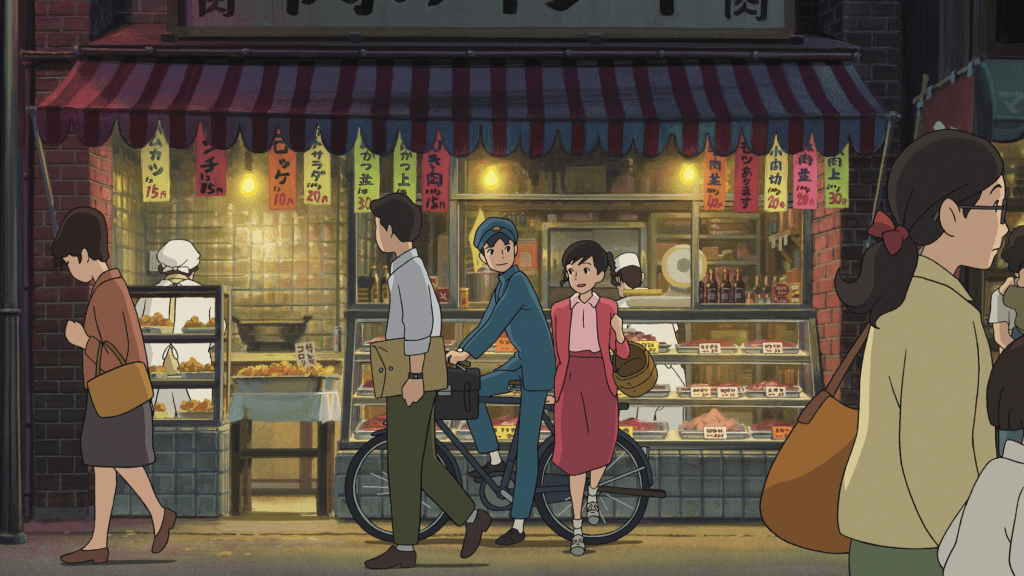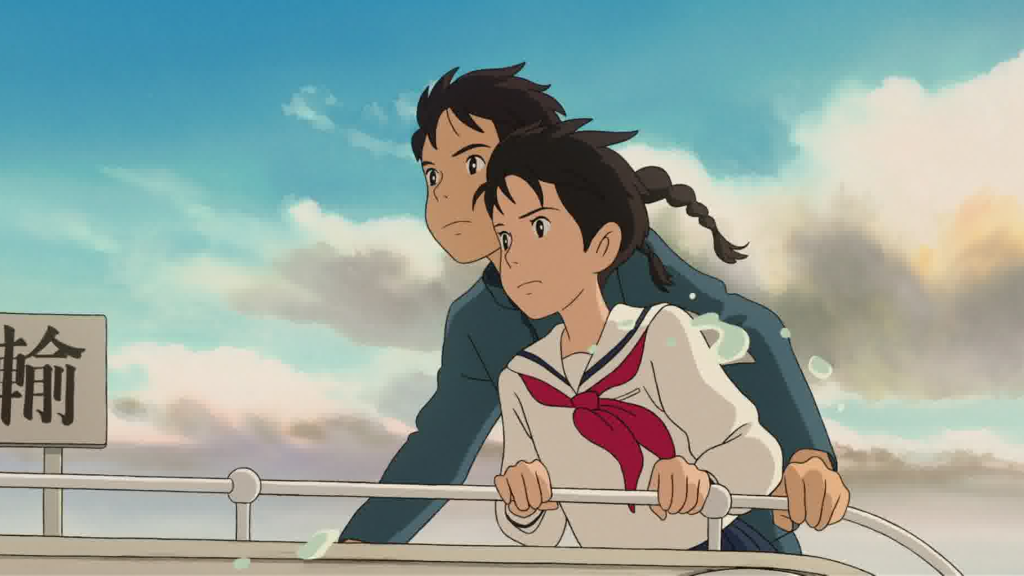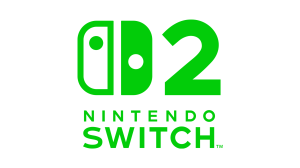Studio Ghibli remains the monolith studio of anime movies, especially in the West. While it might be hard to convince your loved ones to sit down and binge-watch Backstabbed in a Backwater Dungeon: My Trusted Companions Tried to Kill Me, But Thanks to the Gift of an Unlimited Gacha I Got LVL 9999 Friends and Am Out For Revenge on My Former Party Members and the World (which is a real show), they’ve likely heard of Howl’s Moving Castle, Spirited Away, or the recently released The Boy and the Heron. But hiding in between the aforementioned, culturally beloved movies lies Studio Ghibli’s most underrated film, and it’s an absolute tear-jerker.
Videos by ComicBook.com
While many Ghibli fans laud Hayao Miyazaki’s work, his son, Goro Miyazaki, is responsible for Ghibli’s most underappreciated film: From Up on Poppy Hill. Goro might be an unknown commodity to more casual Ghibli fans, who may only know he directed the studio’s worst movie, Tales from Earthsea, which Hayao Miyazaki famously hated. But Goro redeemed himself with From Up on Poppy Hill, and fans need to show it more love.

From Up on Poppy Hill is Heartbreaking
On the surface, From Up on Poppy Hill has a relatively simple plot. The film follows Umi Matsuzaki, a 16-year-old student who develops a rivalry/friendship with her classmate Shun, as they pull their year together to save the school’s clubhouse. But, underneath the story of young love and friendship, From Up on Poppy Hill hides a much darker tale of war and grief.
Like many of Studio Ghibli’s emotional films (here’s looking at you Grave of the Fireflies), war is a major theme in From Up on Poppy Hill. Set in 1963, the movie depicts Japan in recovery from World War II (1939-1945) and the Korean War (1950-1953). Umi Matsuzaki awakes at sunrise every morning and raises two flags in her back garden. The flags mean “I wish you a safe journey” and can be read by all the sailors traveling out to sea. Umi was taught to communicate with flags by her father, who was killed during the Korean War. The flags represent Umi keeping her father’s legacy alive, as well her inability to fully process her own grief.
Her friendship with Shun deepens when Umi discovers his dad was killed alongside her own father. Through their intertwined grief, their bond becomes stronger, and they even begin to develop feelings for each other.
But From Up on Poppy Hill isn’t entirely sad. In the backdrop of their emotional personal journeys is the build up to the 1964 Tokyo Olympics. Their school’s clubhouse has been selected for demolition, to make way for new athletic facilities. To save the building, the students all rally together to refurbish and redecorate the moldy building, while Umi and Shun lobby to their local officials.
[RELATED: Studio Ghibli Quietly Drops Free-to-Play Game with Totoro]

Why Is From Up on Poppy Hill Underrated?
From Up on Poppy Hill features many of the trademarks that make a classic Studio Ghibli movie. It follows a strong female lead, explores what it means to be human while also depicting love and loss, and, most importantly, the animation is absolutely stunning. So why doesn’t it get the respect it deserves?
It’s hard to nail down exactly why From Up on Poppy Hill isn’t more popular with Ghibli fans. It could be argued that many don’t know about it because it wasn’t directed by the legendary Hayao Miyazaki. Alternatively, its period setting and grounded story could dissuade audiences who watch Ghibli films for their fantastical world-building.
There is also a surprising controversy surrounding the film. Anime is a medium plagued by controversies from Western audiences due to some stark cultural differences between the US and Japan like in Dandadan’s latest episode. Without delving too deep into spoilers, Umi and Shun’s deeper feelings for each other become complicated when they learn they’re somehow related. After the reveal, Umi exclaims that she still loves him, which some fans have misread to mean romantic feelings. However, it is generally believed that Umi means familial, emotional love instead of physical love.
From Up on Poppy Hill and the wider Studio Ghibli catalog are all streaming on Netflix and Max in select regions.








